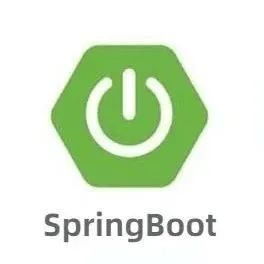你要说他有问题吧,确实能正常执行;可你要说没问题吧,在追求性能的同学眼里,这属实算是十恶不赦的代码了。
首先,让我们用JMH对这段代码做一个基准测试,让大家对其性能有个大概的了解。
基准测试是指通过设计科学的测试方法、测试工具和测试系统,实现对一类测试对象的某项性能指标进行定量的和可对比的测试。而JMH是一个用来构建,运行,分析Java或其他运行在JVM之上的语言的 纳秒/微秒/毫秒/宏观 级别基准测试的工具。
@BenchmarkMode(Mode.Throughput)
@OutputTimeUnit(TimeUnit.SECONDS)
@State(Scope.Thread)
@Fork(1)
@Warmup(iterations = 5, time = 1)
@Measurement(iterations = 3, time = 1)
public class JsonJMHTest {
String json = "{\"id\":122345667,\"email\":\"[email protected]\",\"price\":12.25}";
UserEntity userEntity = new UserEntity(13345L,"[email protected]", BigDecimal.valueOf(12.25));
/**
* 测试String to Object
*/
@Benchmark
public UserEntity objectMapper2ObjTest() throws JsonProcessingException {
ObjectMapper objectMapper = new ObjectMapper();
return objectMapper.readValue(json, UserEntity.class);
}
/**
* 测试Object to String
*/
@Benchmark
public String objectMapper2StringTest() throws JsonProcessingException {
ObjectMapper objectMapper = new ObjectMapper();
return objectMapper.writeValueAsString(userEntity);
}
public static void main(String[] args) throws RunnerException {
Options opt = new OptionsBuilder()
.include(JsonJMHTest.class.getSimpleName())
.build();
new Runner(opt).run();
}
}测试环境
# JMH version: 1.36
# VM version: JDK 17.0.3, OpenJDK 64-Bit Server VM, 17.0.3+7-LTS
# Mac AppleM1/16GB测试结果
通过测试结果可以看出,每次new一个ObjectMapper,在实现字符串转对象时每秒可以完成23万多次,而实现对象转Json字符串每秒仅可完成2.7万次。
那该如何优化,提升性能呢?
单例化
老鸟们都知道,在创建工具类时要将工具类设置成单例的,这样不仅可以保证线程安全,也可以保证在系统全局只能创建一个对象,避免频繁创建对象的成本。
所以,我们可以在项目中构建一个ObjectMapper的单例类。
@Getter
public enum ObjectMapperInstance {
INSTANCE;
private final ObjectMapper objectMapper = new ObjectMapper();
ObjectMapperInstance() {
}
}再次使用JMH对其测试:
@Benchmark
public UserEntity singleten2ObjTest() throws JsonProcessingException {
ObjectMapper objectMapper = ObjectMapperInstance.INSTANCE.getObjectMapper();
return objectMapper.readValue(json, UserEntity.class);
}
@Benchmark
public String singleten2StringTest() throws JsonProcessingException {
ObjectMapper objectMapper = ObjectMapperInstance.INSTANCE.getObjectMapper();
return objectMapper.writeValueAsString(userEntity);
}测试结果如下:
可以看到,使用单例模式,String转对象的方法每秒可以执行420多万次,比new ObjectMapper的方式快了18倍;而对象转String的方法每秒可以执行830万次,性能提升了300倍(看到结果的一瞬间我傻眼了,一度怀疑是写错代码了)!!!!
个性化配置
当然,在项目中使用ObjectMapper时,有时候我们还需要做一些个性化配置,比如将Long和BigDemical类型的属性都通过字符串格式进行转换,防止前端使用时丢失数值精度。
这些类型转换的格式映射都可以在单例类中配置,代码如下:
@Getter
public enum ObjectMapperInstance {
INSTANCE;
private final ObjectMapper objectMapper;
ObjectMapperInstance() {
objectMapper = new ObjectMapper();
// 注册自定义模块
initialize();
}
private void initialize() {
CustomJsonModule customJsonModule = new CustomJsonModule();
objectMapper.registerModule(customJsonModule);
}
}在initialize()方法中给ObjectMapper注册自定义序列化转换器。
第一行是使用注册自定义序列换转换器后的效果,给id和price字段都加上了引号。
再来一次JMH测试:
可以看到,给ObjectMapper额外注册转换类型以后性能会受到一定的影响,但对业务影响不大。(啥业务能这么高的请求~)
小结
通过上面的测试,结论已经很清晰了。使用单例模式进行字符串转对象时性能可以提升18倍,而对象转String性能快了惊人的290万倍,所以在Spring中如何正确的使用ObjectMapper不用我再说了吧~




